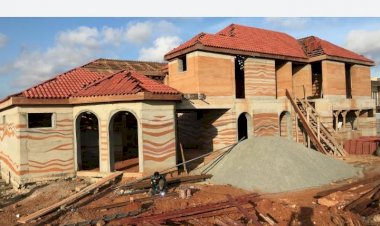Understanding the Impact of Interest Rates on the Kenyan Real Estate Market
Fluctuations in interest rates can impact the affordability of housing, the pace of real estate development, and the behavior of property investors.

Interest rates play a crucial role in shaping the dynamics of the real estate market in Kenya. As a key determinant of the cost of borrowing, interest rates have a direct impact on property prices, demand for housing, and overall investment in the real estate sector. The following are various ways in which interest rates influence the Kenyan real estate market and the implications for both investors and homebuyers.
One of the primary ways in which interest rates affect the Kenyan real estate market is through mortgage financing. Mortgage loans are a common form of financing for homebuyers in Kenya, and the interest rate on these loans significantly impacts housing affordability. When interest rates are low, borrowing costs decrease, making it more attractive for individuals to purchase homes. This can lead to an increase in demand for housing, driving up property prices on the market.
Conversely, when interest rates are high, the cost of borrowing increases, making it more expensive for individuals to take out mortgage loans. This can dampen demand for housing, leading to a slowdown in the real estate market and potentially causing property prices to stagnate or even decline. As a result, fluctuations in interest rates can have a significant impact on the overall health of the real estate sector in Kenya.
In addition to affecting demand for housing, interest rates also influence the behavior of real estate investors. Real estate developers and investors often rely on financing to fund their projects, and the cost of borrowing plays a critical role in determining the feasibility of these investments. When interest rates are low, developers may be more inclined to take on new projects, leading to an increase in construction activity and the supply of housing on the market.
On the other hand, high-interest rates can deter developers from undertaking new projects as the cost of financing becomes prohibitive. This can result in a shortage of housing supply, driving up prices, and potentially creating affordability challenges for homebuyers. Therefore, the level of interest rates can impact the pace of real estate development in Kenya and shape the availability of housing stock in the market.
Moreover, interest rates can also influence the behavior of property investors in the Kenyan real estate market. Real estate is often seen as a long-term investment, and many investors purchase properties with the expectation of generating rental income or capital appreciation over time. The cost of financing plays a key role in determining the return on investment for these properties, as higher interest rates can erode rental yields and reduce the attractiveness of real estate as an investment asset.
Fluctuations in interest rates can impact the affordability of housing, the pace of real estate development, and the behavior of property investors. As such, it is essential for stakeholders in the real estate sector to closely monitor interest rate movements and understand their implications for the market. By staying informed and adapting to changing interest rate environments, investors and homebuyers can make informed decisions and navigate the complexities of the Kenyan real estate market effectively.
If you have a real estate press release or any other information that you would like featured on the African Real Estate Blog Post, do reach out to us via email at [email protected]








![Naomi Campbell's Luxurious Villa in Malindi [PHOTOS]](https://realestateblogpost.com/uploads/images/2021/08/image_380x226_611a6ec7625b8.jpg)
























